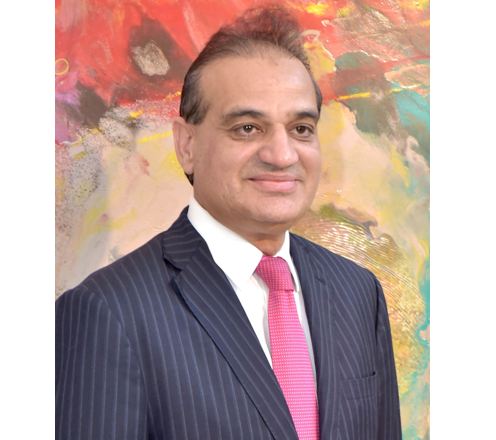Pitfalls of misplaced priorities: some musings

Analysis
Ansar Mahmood Bhatti
Politics in Pakistan continues to evolve with each passing day, but the challenges it faces are deeply rooted in its history. Since its inception in 1947, the country has been marked by persistent political upheavals, a phenomenon that has significantly hindered its ability to achieve steady progress and development. These disruptions have not only delayed nation-building efforts but also left Pakistan struggling to keep pace with other nations that gained independence around the same time, such as India and South Korea, which have made considerable strides in economic and political stability.
One of the fundamental reasons behind Pakistan’s stagnation lies in the entrenched feudal and autocratic mindsets that took hold in its early years. The dominance of feudal lords in politics has perpetuated inequality and slowed democratic reforms, as these elites prioritize their own interests over the welfare of the populace. Simultaneously, repeated military interventions and authoritarian regimes have further stifled the growth of democratic institutions, creating a cycle of instability and mistrust in civilian governance.
This blend of feudalism and dictatorship has left little room for inclusive policies, economic innovation, or robust institutional frameworks, preventing Pakistan from fully realizing its potential. Overcoming these challenges required concerted efforts to dismantle entrenched power structures, strengthen democratic institutions, and promote accountability and transparency in governance but unfortunately nobody either from the political or military side, ever endeavored to put things in order simply because none of them was ready to establish a system that adhered to constitutional principles. Despite the apparent need for reform and stability, efforts to bring order have been hindered by self-serving motives or power dynamics. Neither the political class nor the military appeared ready to relinquish their control or influence in favor of a governance model based on the rule of law and constitutional integrity. This reluctance perpetuated a cycle of instability, undermined public trust, and hampered the country’s progress toward democratic ideals and institutional accountability.
It is both fascinating and disheartening that, even after the passage of 77 years, the status quo continues to dominate the socio-political landscape of Pakistan. The enduring tug-of-war between the Establishment and politicians remains the defining feature of governance, perpetuating a cycle of power struggles that have stymied progress. This relentless pursuit of control, with each side seeking to assert its dominance over all facets of national life, has had far-reaching consequences.
The repercussions of this power imbalance are profound. The very essence of democracy—a system that thrives on representation, accountability, and the people’s will—has been compromised. Instead of fostering unity and prosperity, the ceaseless contest for authority has sown discord and stagnation. Meanwhile, the ordinary citizens, burdened by decades of neglect, corruption, and instability, find themselves trapped in a precarious state, grappling with economic hardships, social inequalities, and an uncertain future.
Even after more than seven decades of independence, the nation seems to be at a crossroads, uncertain about its trajectory. The question of what the future holds for Pakistan remains as pressing today as it was in the early years of its formation. Without meaningful reforms and a collective commitment to prioritise the needs of the people over the ambitions of a few, the country risks perpetuating this cycle of uncertainty and missed potential.
Recently, military courts convicted civilians involved in the May 9 incidents, a decision that appears to have deepened the already fragile civil-military relationship. The convictions lacked domestic and international support, raising questions about their legitimacy. Analysts argue that these individuals could have been prosecuted in civilian courts, leaving many to wonder why the military opted for its own tribunals, thereby inviting widespread public disapproval. The United States, European Union, and United Kingdom strongly criticised these trials, deeming them contrary to the spirit of Pakistan’s Constitution. While the sitting government appears unbothered by the rebuke from these nations, it is well aware of the potential long-term consequences if such criticism gains traction.
The challenges facing the incumbent ruling clique are expected to intensify once the Trump administration assumes office in the United States. Whether one likes it or not, the U.S. consistently plays a pivotal role in Pakistan’s major decision-making processes. It even has the ability to influence regime changes in the country. Therefore, any signals from advisors of the incoming U.S. administration—whether in favor of certain politicians or otherwise—should not be ignored and must be taken seriously.
Insiders familiar with these developments suggest that what has been observed so far is merely the tip of the iceberg. The real implications will become evident once the Trump administration is fully in charge.
The challenges faced by those in power are numerous and complex. The recent escalations at the Western border present yet another difficult issue for the security establishment to address. The situation in Kurram remains dire, with no resolution in sight. Meanwhile, any confrontation with the Taliban government under the current circumstances risks exacerbating the situation. This is particularly concerning as the Taliban have explicitly stated their intention to respond to Pakistani airstrikes within Afghan territory.
Political stability at home appears to be the only viable option to address both internal and external threats effectively. The ongoing discussions between PTI and the government hold the potential to contribute to this stability, provided they yield meaningful results. However, given the dismissive response from some government ministers to PTI’s offer for dialogue, the chances of these talks succeeding seem slim. Unfortunately, certain ministers, including the defense minister, appear determined to derail these negotiations, regardless of the consequences.
Even if talks between PTI and the government succeed, it is unlikely that political instability will dissipate anytime soon. The reasons are clear: the current setup lacks both credibility and public support. As I have emphasized in my earlier pieces, the only viable solution seems to be the holding of free and fair mid-term elections. Any other arrangement would likely prove counterproductive, especially in the current circumstances where politics is at its nadir, and the economy is in complete disarray.
Related News

Christmas, Islam, and the Lost Message of Peace
Qamar Bashir Christmas is one of the most cherished moments in the global calendar, markingRead More

We spray because we are afraid. Knowledge takes that fear away
By Azhar Jatoi Muzaffargarh: Every morning before the sun rises, Muhammad Afzal steps into hisRead More


Comments are Closed